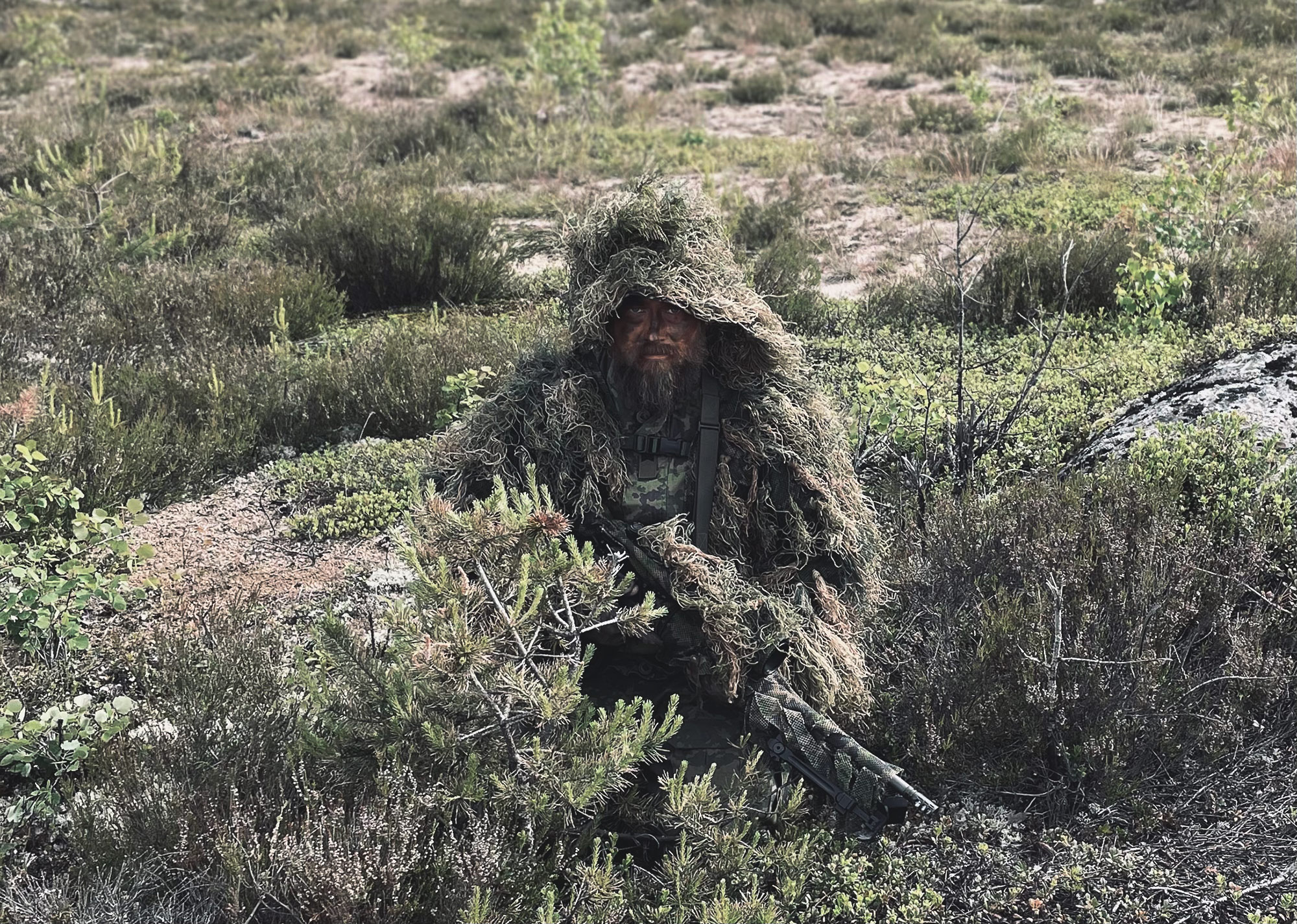
Battle Belt Setup – How to win a Finnish sniper competition
Battle Belt Setup – How to win a Finnish sniper competition
There are many ways to come up with a battle belt setup. All serious gear choices are exclusively purpose-driven, and in this article the purpose is to win a sniper competition. In Finland, competitive sniping is an official sport under the Reservist Sports Federation; a sport focused on fieldcraft skills and long-range shooting. There are national competitions such as FinnSniper and the Häyhä national championships.
Sniper competitions require a certain set of equipment. The setup a team uses during a stage usually is quite the bare minimum – carrying unnecessary gear will affect your performance. In this article, we will show what the winning team of FinnSniper 2022 wore on their battle belts.
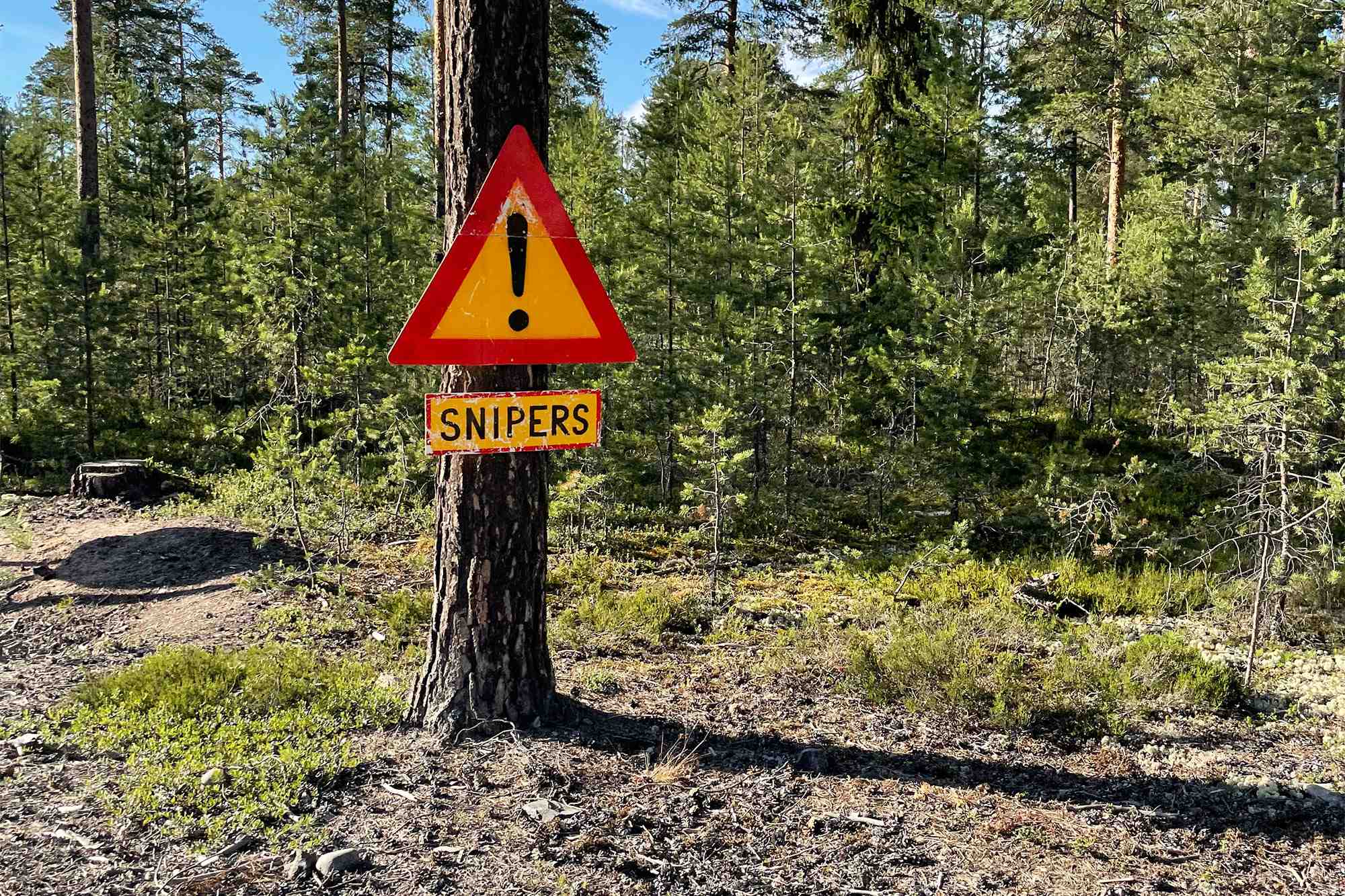
What is a sniper competition?
PRS (Precision Rifle Series) style training and competitions are a very good way to learn how to shoot under time pressure, with limited ammo, and from uncomfortable positions at small targets quite far away. This sort of training is vastly superior to casually punching holes in paper while lying prone. However, going the sniper way is much more than just shooting.
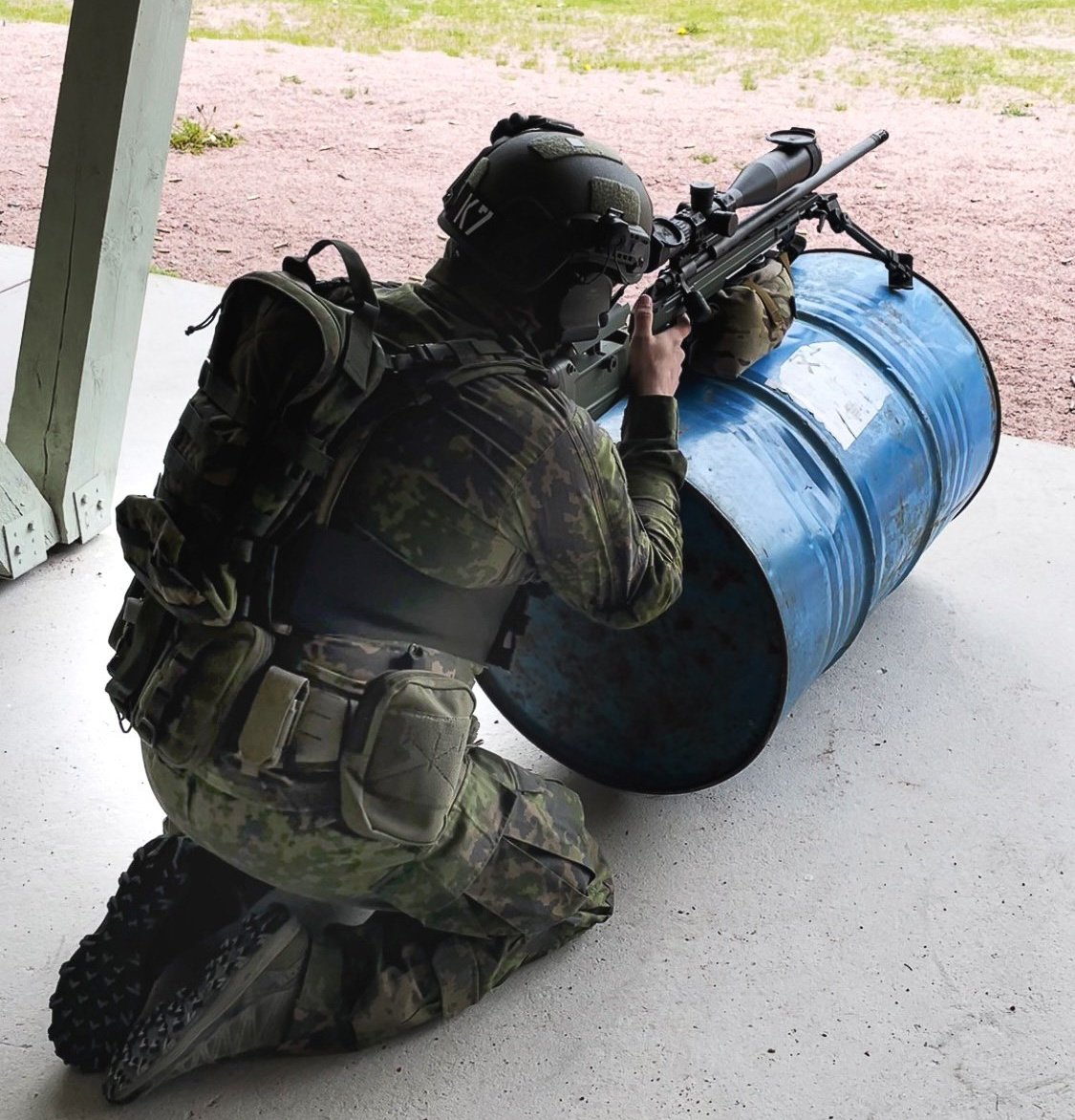
PRS drills with combat gear and battle belt on.
Sniper competitions, such as FinnSniper, measure soldiering skills broadly. The competitions are multi-day and are divided into stages, usually about ten. Most stages involve long-range shooting, but there are also major fieldcraft components to them, such as TCCC, gathering intel, land navigation, IDF fire orders, and so on. Most of the shooting is done at unknown distances without the luxury of LRF measurements; you're limited to milliradian scope reticles and the milliradian formula. If your measurements and wind calls are inaccurate, you will surely miss your man-sized target at 1000 meters or so.
What is a battle belt?
In the days of yore, combat webbings were simply belts with the possible addition of a harness or suspenders. The belts would have pouches for ammo, grenades, and so on, or these items would be attached directly to the webbing. Modern infantry solutions usually have body armor components as a centerpiece. However, the gear needed to make holes and patch them up is carried on a soldier’s body the same way as always – readily available.
Battle belts are basically an old-school method of carrying gear on your waistline. They are popular with users who do not want to crowd their chest or abdominal area with pouches. And now we move on to the sniper realm. Snipers often spend their time lying prone in a firing position or crawling to the next one. Lumpy objects on the front of the body will make life miserable when you crawl over some uneven terrain, like tree roots or shrubs and the like. Your profile will also be taller and larger, and you might struggle to have a stable shooting position while prone.
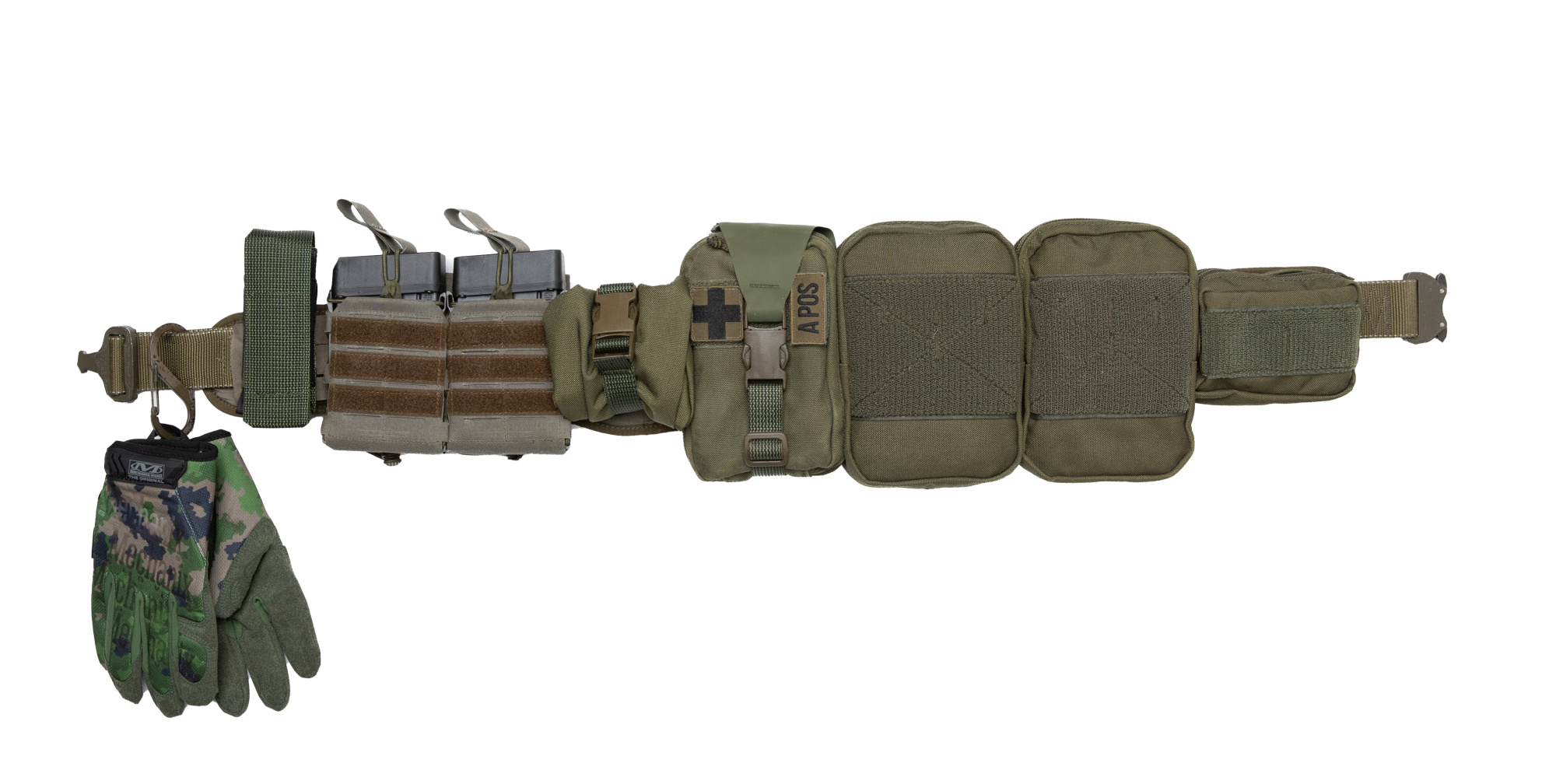
An example of a battle belt setup.
Technically, the modern "battle belt" usually refers to wider belts with PALS webbing areas. They can be either a fixed unit like the Sioen Tacticum Battle Belt, or removable PALS webbing sleeves over an inner belt. Some users prefer slimmer shooter’s belts, with or without PALS webbing. These variations have a few technical differences between them, but the purpose and pouch placement are all the same. This is more or less a matter of taste.
As mentioned before, the battle belt is where you carry your critical fighting gear. A sniper must also be able to reach certain essential items while lying prone – without getting up or engaging in other visible movements.
Great, you have gotten this far – now we are getting to the point!
Sniper competition gear
All competition gear is carried according to the concept of three lines of gear placement. The first and second lines of gear are usually kept on at all times during a stage. This means weapons, ammo, IFAK, comms, and special sniper equipment such as tripods, camouflage, spotter’s optics, an LRF, and an anemometer. The third line of gear – food, shelter, et cetera – can either be left at the accommodations or the stage waiting area. This depends on how the competition is run and what the particular rules are.
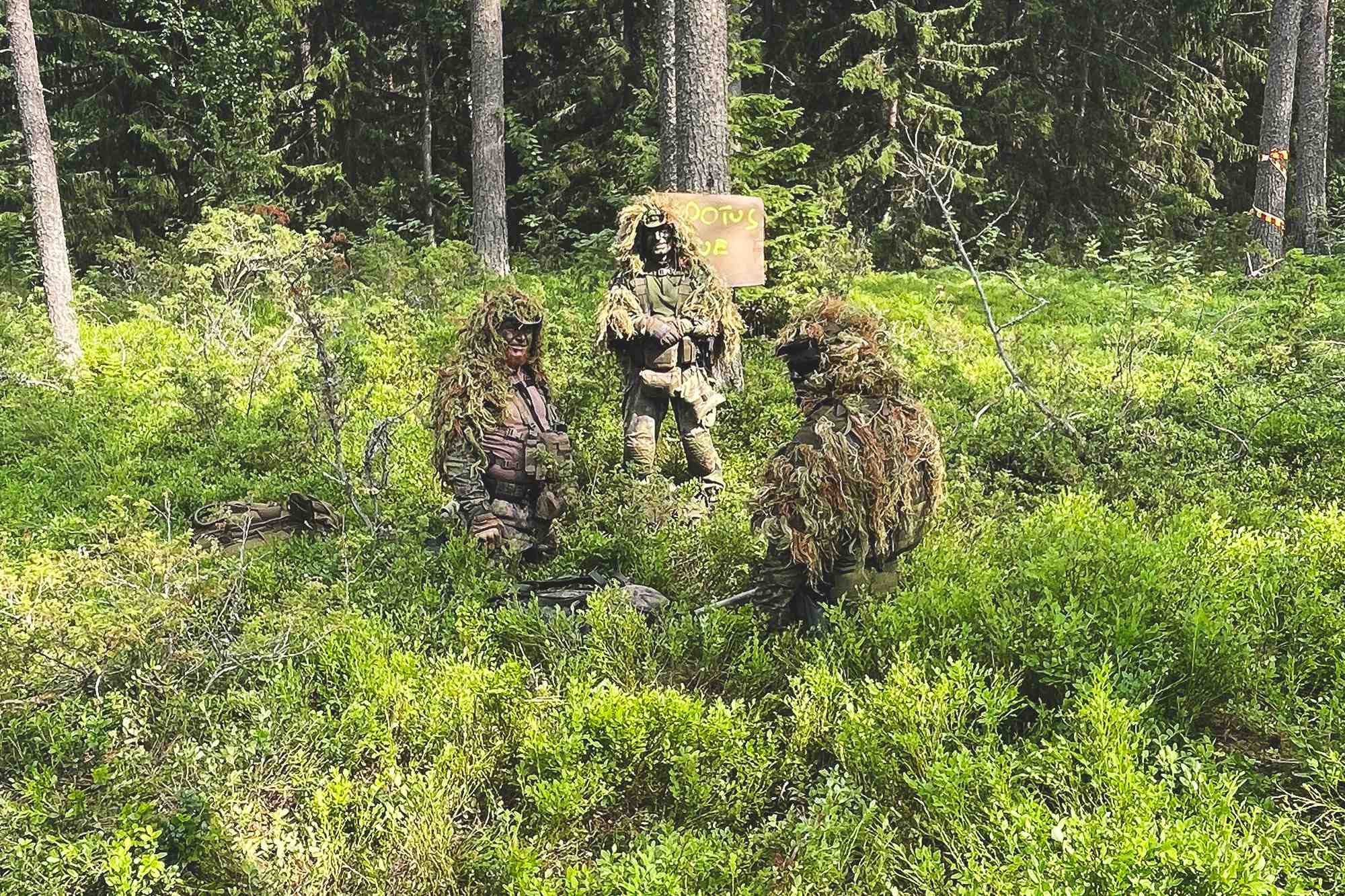
A waiting area with forest dwarves from Savonia.
For technical and safety reasons, nighttime is mostly reserved for rest and maintenance. The team accommodations are put up in certain locations, and they stay up for the duration of the competition. Therefore, the entire gear arsenal is not required to be carried all the time.
The gear competitors carry during a stage might be a little more streamlined than what it would be in actual situations. In a competition setting, a competitive team usually opts for optimal competitive performance, not so much for accurate gear larping. But even after streamlining, the first and second lines of sniper gear can easily weigh at around 25 kg / 55 lbs per team member. A proper sniper rifle with proper optics, accessories, and a full mag can be 10 kg / 22 lbs by itself.
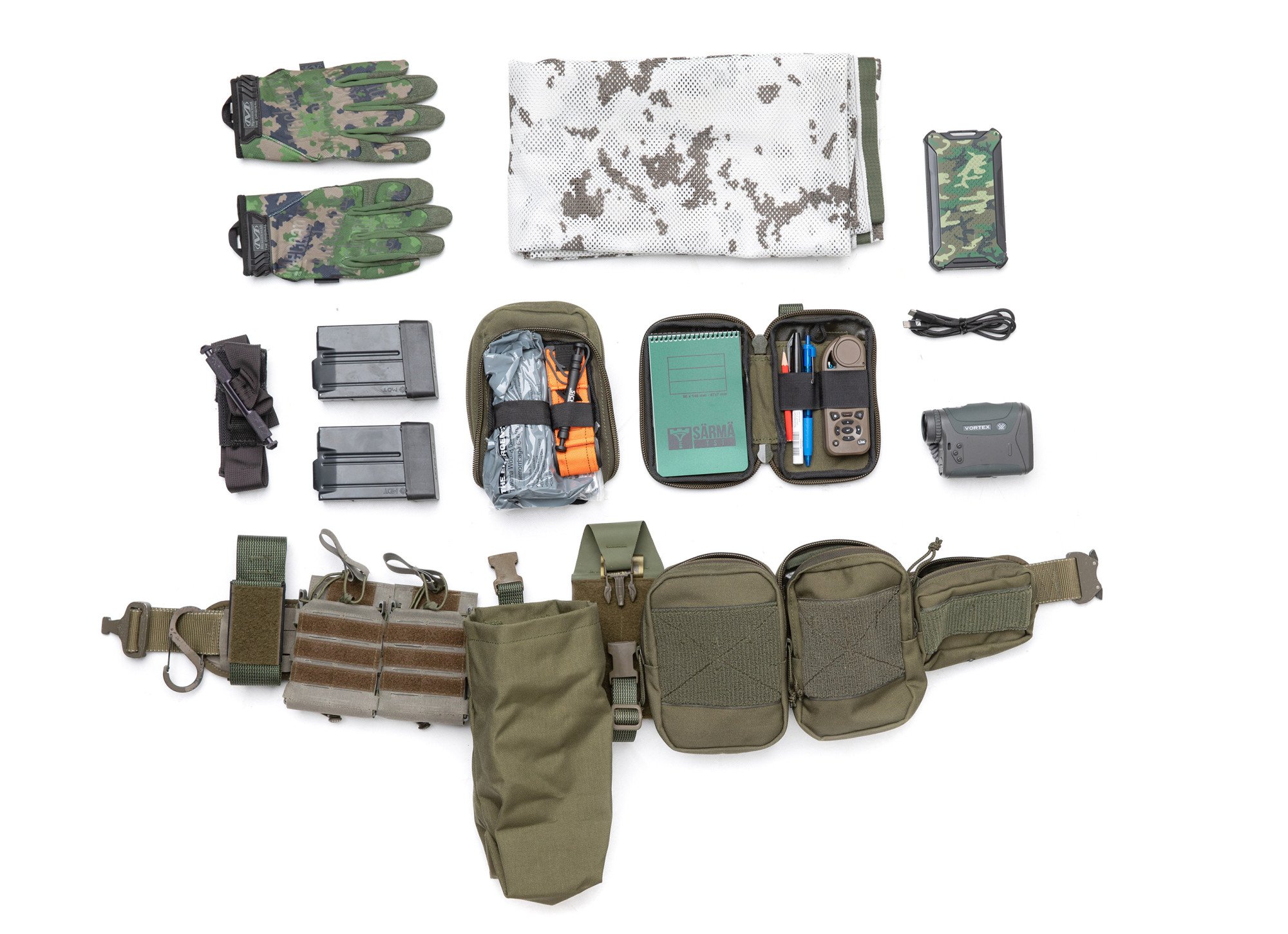
An example of a battle belt setup.
FinnSniper 2022 winner team gear
Finnish sniper competitions usually are run with three-person teams. The 2022 FinnSniper winning team consisted of a spotter, a shooter, and a fire support guy. The spotter and the shooter had bolt action rifles in .338 Lapua Magnum, and the fire support was using a semi-automatic rifle in .308 Winchester.
The team roles in simple terms: The spotter is the team leader. The spotter makes wind calls, measures distances, uses a ballistic chart to feed information to the shooter, spots the shots, and gives shot corrections if a target is missed. The shooter shoots. On some stages, the spotter might also shoot if necessary or required. The fire support shoots closer targets and has more firepower but a shorter effective range.
On stages with other things going on besides shooting, all team members do things according to their personal skills. Sometimes the stage might involve a certain team member becoming "temporarily incapacitated," and the team roles must be switched. In this case, it is good to have a versatile team with broad, overlapping skill sets.
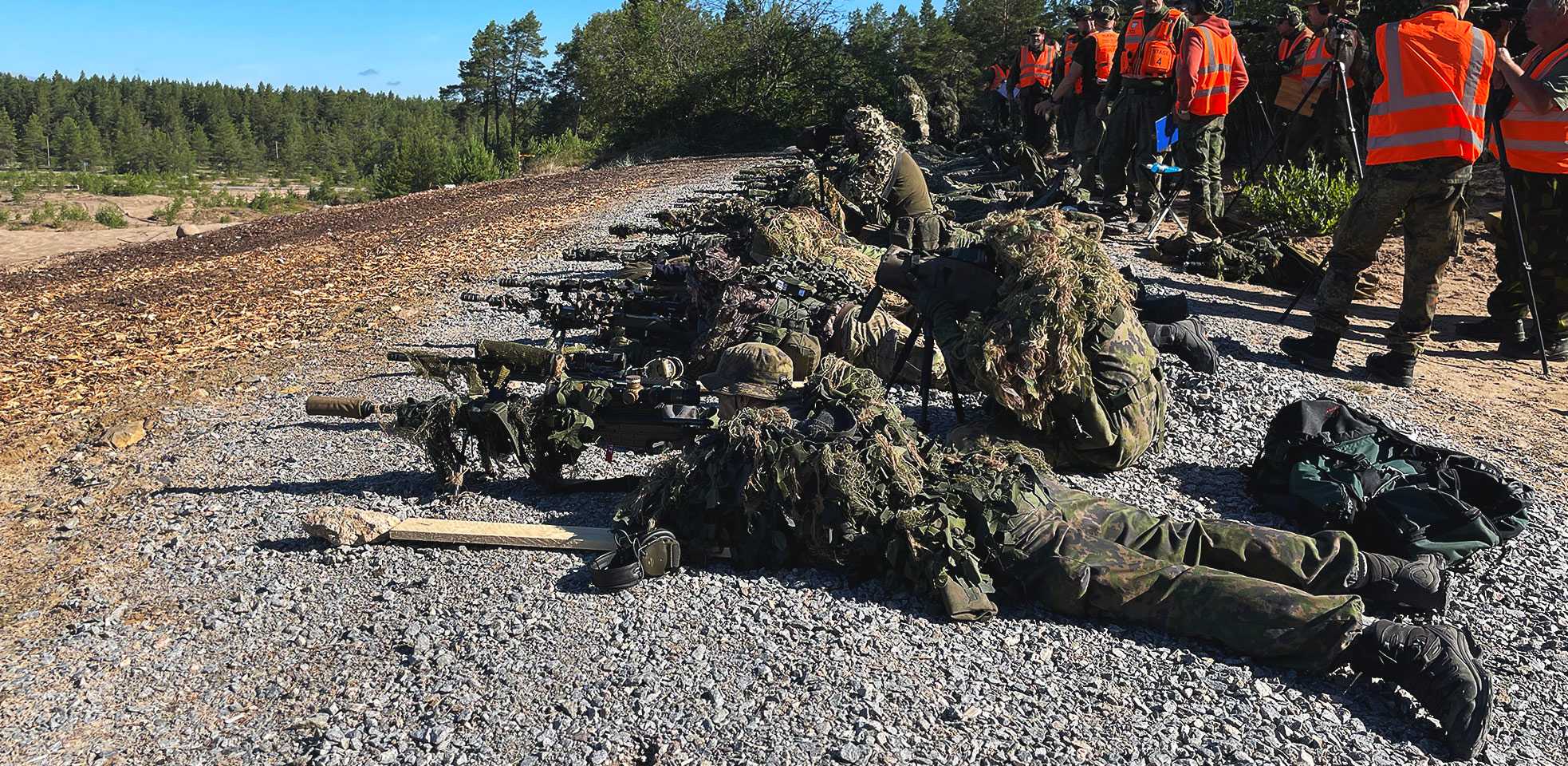
The last stage of FinnSniper has all spotter-shooter pairs shooting at the same time.
The FinnSniper 2022 winning team wore ghillie hoods and backpacks with items such as a spotting scope with a tripod, tripods for rifles, and various support bags for shooting from tricky surfaces. They wore battle belts and so-called kangaroo pouches, admin pouches mounted on the chest. The kangaroo pouches had e.g. team radios, the spotter had ballistic charts and binos, and the shooter had mostly candy bars and empty wrappers. And here we have the meat of the story:
Spotter’s battle belt
- Belt and harness
- General purpose pouch Zip M
- .338LM rifle mags
- General purpose pouch Zip M
- Power bank
- Pocket organizer
- Notepad and pencils
- Kestrel anemometer
- Dump pouch
- IFAK
- General purpose pouch Zip M
- General purpose pouch Zip XS
- Multi-tool
- Tourniquet
Shooter’s battle belt
- Belt and harness
- Mag pouch
- .338LM rifle mags
- General purpose pouch Zip M
- Straps
- Cable ties
- IFAK
- Pistol mag pouch x 2
- Pistol mags 9mm
- Pistol holster
- Pistol 9mm
- Multi-tool
- Flashlight
Fire support guy’s battle belt
- Belt and harness
- Taco mag pouch x 2
- .308Win rifle mags
- General purpose pouch
- .308Win rifle mags
- General purpose pouch Zip M
- Carbohydrates and palm oil
- Dump pouch
- IFAK
- Multi-tool
PRO-TIP: If you want to streamline your Särmä TST general purpose pouches' zipper closure, remove the other pull loop (the one closest to your chest centerline) to turn the 2-way zipper into a single action. Now the pouch opens when you pull back on the loop and closes when pulled to the front. This way, you’ll always know where the pull loop is without looking – this comes in handy, especially when it is dark. The chance of leaving the pouch open is also a bit smaller.
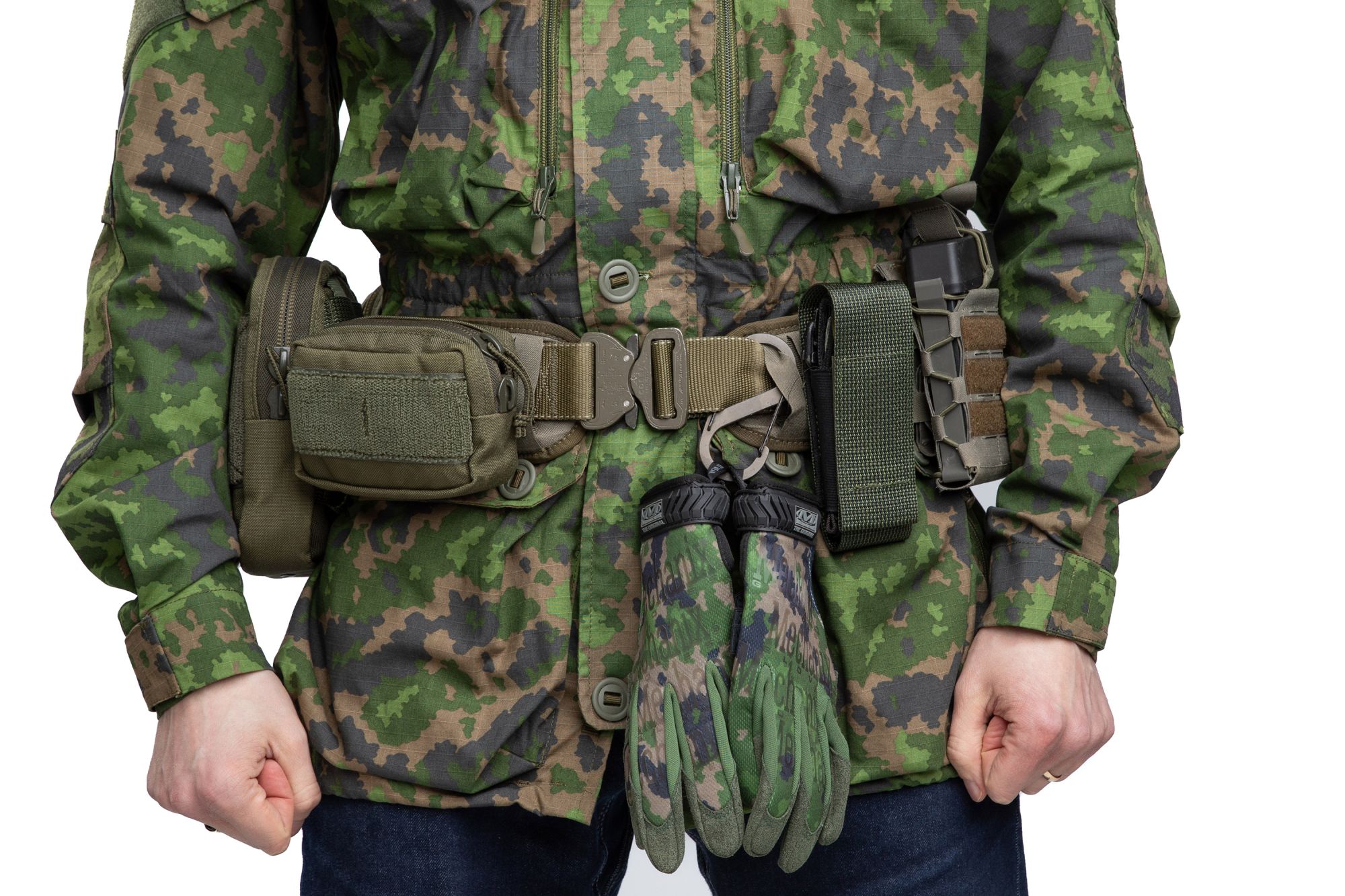
Last but not least
Keep in mind that the correct gear choices only enable your team to fulfill its potential. In order to succeed in competition, your team members must have solid individual skills, and your team must train together until there are no problems with communication or otherwise. So, go out and train, and train to win!